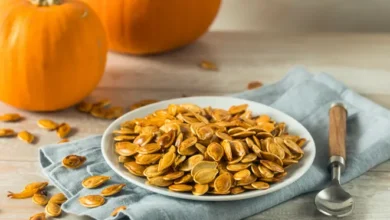7 Simple Solutions To Superpower Garden Soil And Growth
The sharp edges will deter the slugs and snails by abrading their bellies and the sensitive feet of another land mollusk.
Use them as seed starter pots: The eggshells decompose quickly once introduced to the soil. This makes them good seed starters.
When preparing to cook your eggs, ensure you break a small part of the pointier end.
Clean the inside of the shell using boiling water, and remember to create a small hole at the bottom for drainage.
Place them in a carton, fill them with moist, well-drained soil, and then add the seed crystals.
Once the seeds germinate and outgrow the pot, you can now transplant them together with the shell into the herb garden.
You can also use them to feed the birds, especially the mother birds that need diets rich in calcium. Eggshells also repel deer. Since the deer hate the smell of albumin, they will stay away from your garden.
More Uses For Eggshells
3. Use The Old Coffee Grounds In Your Garden

The coffee grounds are a very useful soil amendment for your garden. First, the old coffee grounds will act as excellent ground mulch, especially for plants that love acid, including:
- Huckleberry
- Blueberry bushes
- Azalea plants, flowers, and bushes
- Rhododendrons
- Juneberry
- Holly bushes
- Camellias
- Trillium
- Fragrant gardenia plants
- Begonia
The coffee grounds also contain nitrogen, which is very important to plants. The coffee grounds will create a ring of protection, keeping the slugs, snails, and ants away from plants such as tomatoes, strawberries, and lettuce, among others.
The coffee grounds are also rich in nutrients such as phosphorus, copper, potassium, and magnesium. This makes them effective for making high-quality liquid fertilizers.
Additionally, you can use them to stain your garden benches instead of using paints that leach toxic chemicals into the soil. They also make an excellent substrate for growing oyster mushrooms.
4. Banana Peel Plant Fertilizer Spray

The banana peel fertilizer spray is an amazing fertilizer that is rich in much-needed nutrients such as Potassium, Manganese, Magnesium, Calcium, Sulphur as well, and phosphorus.
To prepare this spay fertilizer, you will need about four banana skins. A tablespoon of Epsom salt, three eggshells, water, and a spray bottle.
Procedure
Step #1: Place the banana peels under the sun or use your food dehydrator to dry them. Add the eggshells and dry them well.
Step #2: Take the dry banana peels and eggshells and place them in your food processor. Pulse until they become a fine powder.
Step #3: Add the Epsom salt together with the powder to your spray bottle. It is important to make sure that your spray bottle can hold about 32 ounces. If the bottle is smaller, you can use it in a couple of bottles. If it is large, you can half the recipe.
Step #4: Add water to the bottle until it is almost full and shake vigorously until all the powder and salt have dissolved. Use this mixture on your garden plants.
Remember to spray into the soil around the plant and avoid spraying their leaves, as this will not be of many benefits to the plant.
5. Manure Tea For Your Superpower Garden

Manure tea has many benefits for plants. First, manure contains the much-needed nitrogen for your plants. The manure is also affordable over other chemical fertilizers and it is all-natural meaning that it will not damage your soil.
The manure tea also adds other natural enzymes and micronutrients that are not found in the chemical fertilizer. Additionally, its liquid form enables it to penetrate the roots for the plant to absorb easily.
Preparing the manure tea is rather simple. You just need to have some manure, water, empty garbage or storage container, a rope, and an old pillowcase or sack.
Step #1: Place the manure in your pillowcase. You can use a hand trowel to put about ten heaping scoops of manure. Remember to use only old manure that has decomposed fully. Fresh manure may burn your plant and often contain harmful pathogens that may damage plants.
Step #2: Use the rope to tie the pillowcase, making sure that the knot is tight to avoid leaking the manure. The rope will also keep this teabag from sinking to the bottom.
Step #3: Place the giant teabag into the container and make sure it hangs on the edge. Of course, you wouldn’t want to stick your hand to scoop the teabag if it sinks. Add about ten gallons of water.
The brewing period is fast, but you should allow for about two days for all the manure to dissolve.
After this, you will find that the water has turned to a dark brown color. Spray this manure tea around the roots of your plants.
6. Composting

A compost pile helps you build better and healthier soil. The process of making the compost is simple, although the microorganisms will take some time to break the components.
You can use trench composting to compost eggshells and other kitchen scraps. The compost manure will add all the necessary nutrients that are needed to have healthier plants for better yields.
7. Use Epsom Salt In Your Superpower Garden
Epsom salt is a safe and natural product that can be used to enhance the productivity of your garden as well as in households to provide natural frugal benefits.

The salts are mineral compounds of magnesium and sulfate in crystal form. Here are some of the uses of Epsom salts.
Aids in seed germination: Magnesium found in these salt crystals helps in seed germination and strengthens the plant’s cells.
This will increase the germination percentage and the development of stronger seedlings.
Make tomatoes tastier: Since the tomato plants bear many fruits that have a weight exceeding the plant size, they tend to have a deficiency in calcium and magnesium, Epsom salt helps tomato plants when added at planting and during the growing season.
Since the roots compete to absorb calcium and magnesium, it is advisable to spray the salts on the leaves.
Increase nutrient uptake and overcome transplant shock: Once magnesium is added to the plant, it enhances the plant roots, making them absorb nutrients such as Sulphur, phosphorus, and nitrogen easily.
The salt will also reduce the chances of a seedling wilting after being transplanted.
Enhances the Greening of the foliage and sweetens fruits: Magnesium helps in the production of chlorophyll. When you add Epsom salt, your plants will achieve healthier and increased foliage.
The development of fruits demands a lot of nutrients. When you add the Epsom salts, these nutrients are “more available.”
These nutrients will provide the energy needed to make primary sugars, allowing the plant to make healthier and sweeter fruits.




